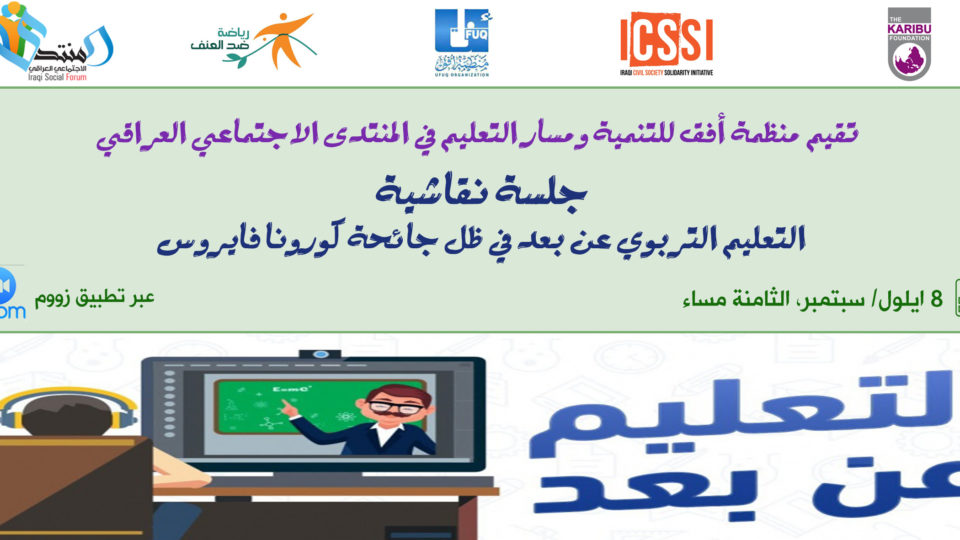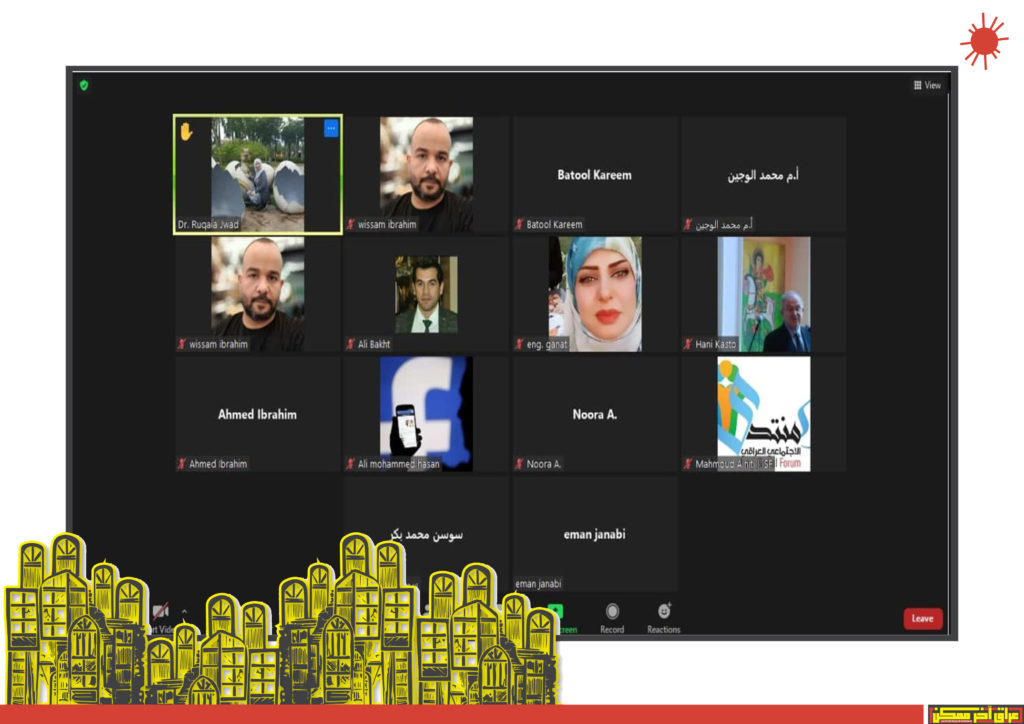- 9 سبتمبر، 2021

The education path in the Iraqi Social Forum and Ufuq Organization for Human Development was implemented on the eighth of September 2021, through the Zoom application, an online discussion session on (distance education in light of the Corona Virus pandemic). Where fourteen activists and academics interested in education issues in Iraq participated in it to discuss the issue of distance education in light of the pandemic and its impact on student levels, as well as challenges and opportunities that can be noted.
The session was opened by colleagues Mahmoud Al-Hiti, Secretary of the Social Forum, and Wissam Ibrahim, Coordinator of the Education Path in the Iraqi Social Forum, welcoming the participants and introducing the Forum and the path as well as the organization and activities they are working on with regard to education. After that, our colleague Wissam asked many questions to the participants in order to find out their opinions and recommendations regarding the educational reality in Iraq. The session included provoking discussion on a number of questions, including:

What are the obstacles faced by e-learning in light of the pandemic in Iraq?
Some participants contributed to the discussion about the obstacles of a physical nature that showed an inability to achieve the goal of distance education imposed by the pandemic, for example, the lack of electronic devices for all students due to the deteriorating financial and economic situation in addition to the weakness of the Internet, in addition, there are many obstacles related to the efficiency of students and teachers in dealing with the means of e-learning.
What are the platforms that have been used in e-learning according to your experience/experience?
The participants talked about their experiences in using many digital platforms and applications in education, especially with regard to digital education, such as Telegram, WhatsApp, Google Meet, zoom application, Google Class Zoom, but they did not meet the actual need in addition to the method of presenting the material and addressing the minds of primary and middle school students, too, posed an additional challenge to teachers and students alike.
– What are the benefits of e-learning for Iraq in particular, according to your opinion/opinion?
According to the opinion of the participants, there are not many positives currently; Where electronic illiteracy on both sides causes communication and learning via the Internet to be non-interactive and lack classroom activity. While some expressed the positives that accompany e-learning in terms of saving a lot of money and time, in addition to developing the spirit of research and inquiry among students.
Do you see that e-learning will take a greater role in the future, or will it recede after the end of the pandemic? And why?
The future of education depends on the future of the entire country, as it is an integral part of the conditions with which the Iraqi citizen lives and coexists. Therefore, the adoption of electronic study in the future depends on many economic, social, and also psychological factors that must be provided by institutions concerned with education in order to obtain a sound and successful study experience. In addition, the participating colleagues raised one of the most important problems facing education, which is the traditional educational curriculum, which is far from real life, yet it has been consistently adopted by educational authorities for many years, which paralyzed the students’ ability and desire to learn.
It is worth noting that this activity is part of a series of activities implemented by the Forum this year in partnership with the Caribou Foundation.

